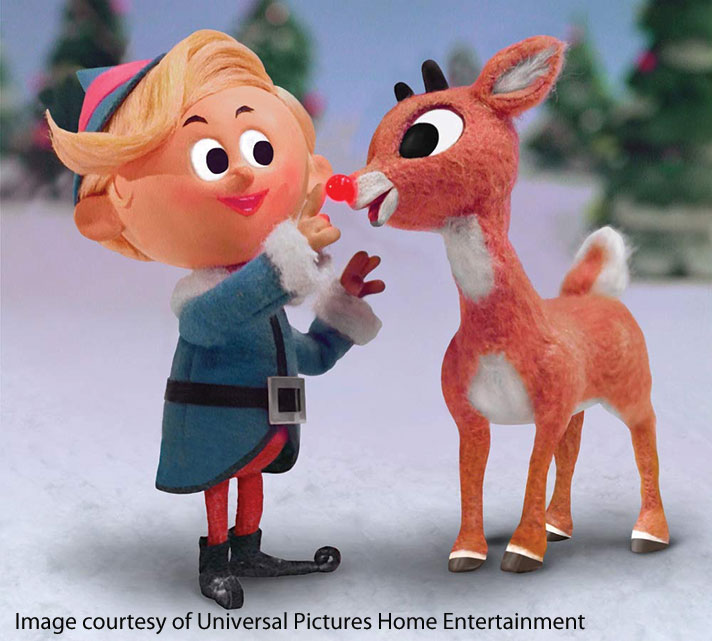The Unfettered Critic – December 2019/January 2020
‘Tis time again for animated Christmas specials to pop-up on the tube, many of them rebroadcasts of beloved classics from decades ago. We won’t waste precious space to list them all (honestly, do you really care to hear about Grandma got Run Over By a Reindeer?). Instead, we’ll touch upon three of our personal favorites.
Let’s start with the oldest item on our shortlist: 1962’s Mr. Magoo’s Christmas Carol, the first ever made-for-television animated Christmas special. Yes, we’re talking about that Mr. Magoo—the bald, nearsighted character voiced by actor Jim Backus in dozens of cartoons. Here, Magoo “performs as Scrooge”—the conceit being that he is acting in a Broadway production of Dickens’ A Christmas Carol. Dispensing with his trademark myopia, Magoo plays it straight in the familiar tale of miserly Scrooge’s ultimate enlightenment via spiritual intervention, learning that a man who buries his feelings to live a cold life winds up buried in a cold grave, with no mourners. The animation is so-so, but oh, those songs, written by Broadway composers Jule Styne and Bob Merrill (Funny Girl) are exceptional! Our favorite is “Alone in the World,” sung by young Scrooge during a particularly lonely moment. Could anyone listen to lyrics like, “A hand for each hand was planned for the world, why don’t my fingers reach? Millions of grains of sand in the world, why such a lonely beach?” without his eyes growing moist?
We all know how the classic story of “A Christmas Carol” ends, just as we all know how Rudolph the Red-Nosed Reindeer’s shiny nose saves the day for Santa. BUT…we wonder whether you’re familiar with the quirky charm of the stop-motion animated version of Rudolph the Red-Nosed Reindeer that debuted in 1964. It’s a perennial favorite—not because of the famous Johnny Marks song that inspired it, but because of the offbeat humor that permeates the goings-on. The whole “tragic” tale is presented, tongue-notably-in-cheek: Rudolph’s parents, embarrassed by their son’s apparent aberration, fashion a fake nose for him to wear; the other reindeer mock him, refusing to allow him to join in those reindeer games; and even Santa shuns him. (Shame on you, Santa!) Rudolph mournfully warbles, “Just because my nose glows, why don’t I fit in?” But soon he hears Hermey the Elf crooning his own sad song about being a misfit. Hermey’s problem isn’t physical—it’s vocational. He doesn’t want to make toys like Santa’s other elves; he wants to be a dentist! This, for some unsaintly reason, doesn’t go down well at the North Pole, so Rudolph and Hermey run away from home, looking for a place where misfits fit in. It’s not easy, though. They don’t even fit in on the Island of Misfit Toys, a place where Santa apparently has sent all the imperfect toys. (Shame on you, Santa!) It all works out in the end, and every misfit finds a niche—Rudolph, Hermey, the imperfect toys, even the Abominable Snowman—and Rudolph lights Santa’s way on Christmas Eve.
A Charlie Brown Christmas, the first and arguably best of the Peanuts specials, aired in 1965. Perpetual schlemiel Charlie Brown is depressed as the holidays approach. (What—you’re surprised?) He can’t seem to do anything right, not even choose a proper Christmas tree for the school play. But after pal Linus reminds the other kids about the true meaning of Christmas, they pitch in to make Christmas a real Christmas, inclusive of Charlie Brown and his bedraggled vegetation. A sweet tale. No memorable songs, but Vince Guaraldi’s gentle jazz score has rightfully become a modern Christmas staple.

 Paula and Terry identify as writers, with an ever-increasing number of published works to support the supposition. They live a primarily pastoral life in the enchanted town of Jacksonville.
Paula and Terry identify as writers, with an ever-increasing number of published works to support the supposition. They live a primarily pastoral life in the enchanted town of Jacksonville.